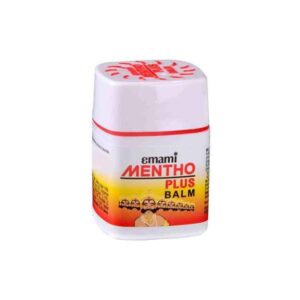AYURVEDIC + DOUBLE UV PROTECTION
Ayurvedic: Ayurvedic medicine, also known as Ayurveda, is a traditional system of medicine that originated in India. It incorporates various herbs, minerals, and metals to promote overall health and treat various ailments. Ayurvedic medicines are used for a wide range of conditions, including digestive issues, respiratory problems, joint pain, skin disorders, and stress-related disorders.
Mechanism of action:
The mechanism of action of Ayurvedic medicine is not well understood from a modern scientific perspective. According to Ayurvedic principles, these medicines work by restoring the balance of doshas (energies) in the body, promoting optimal health and well-being. Different herbs and formulations are believed to have specific effects on different doshas, which are associated with specific functions and organs in the body.
Dosage:
The dosage of Ayurvedic medicines can vary depending on the specific formulation and the condition being treated. It is important to consult an Ayurvedic practitioner or healthcare provider to determine the appropriate dosage for each individual. Ayurvedic medicines are available in various forms, including tablets, powders, decoctions, and oils.
Side effects:
Although Ayurvedic medicines are considered natural and usually safe when used appropriately, it is important to note that they can still have side effects. These side effects may vary depending on the specific herbs or components used in the formulation. Some possible side effects may include:
1. Allergic reactions: Some individuals may experience allergic reactions to certain herbs or ingredients in Ayurvedic medicines. Common symptoms include rashes, itching, and swelling.
2. Impurities: In some cases, Ayurvedic medicines have been found to contain heavy metals or other impurities, which can be harmful to health when used for an extended period of time.
3. Drug interactions: Ayurvedic medicines may interact with conventional medications, potentially reducing their effectiveness or causing adverse reactions. It is important to inform your healthcare provider about all the medications you are taking before starting Ayurvedic treatment.
4. Upset stomach: Some Ayurvedic medicines may irritate the stomach or cause gastrointestinal disturbances, such as nausea, vomiting, or diarrhea.
It is important to purchase Ayurvedic medicines from reputable sources and consult a qualified Ayurvedic practitioner or healthcare provider before starting any Ayurvedic treatment. They can provide guidance on the appropriate use, dosage, and potential side effects of these medicines based on individual needs and health conditions.
Double Uv Protection: Drug Name: Double Uv Protection
Use: Double Uv Protection is a medication primarily used as a sunscreen to protect the skin against harmful ultraviolet (UV) radiation from the sun. It is applied topically and provides a barrier that helps prevent sunburn, premature aging, and reduces the risk of skin cancer caused by UV exposure.
Mechanism of Action: Double Uv Protection works by utilizing a combination of physical and chemical filters to block or scatter UV radiation. Physical filters such as titanium dioxide and zinc oxide form a protective barrier on the skin’s surface that reflects and scatters UV rays. Chemical filters, such as avobenzone and octinoxate, absorb UV radiation and convert it into less harmful forms of energy.
Dose: Double Uv Protection is typically provided as a sunscreen lotion, cream, or spray. The exact dosage depends on factors such as the individual’s age, skin type, and the level of sun exposure. Generally, a sufficient amount should be applied evenly to all exposed skin at least 15 minutes before sun exposure. Reapplication may be necessary after swimming, excessive sweating, or prolonged exposure to the sun.
Side Effects: Double Uv Protection is well-tolerated for most individuals when used as directed. However, some potential side effects may include:
1. Skin Irritation: In rare cases, individuals with sensitive skin may experience redness, itching, or a rash at the application site. Discontinue use if severe irritation occurs.
2. Allergic Reactions: Some people may have an allergic reaction to one or more of the ingredients in the sunscreen. Symptoms may include hives, swelling, or difficulty breathing. Seek medical attention if an allergic reaction occurs.
3. Eye Irritation: Avoid applying Double Uv Protection directly to the eyes. If contact occurs, rinse thoroughly with water.
4. Sunscreen Stains: Some sunscreens may leave temporary discoloration on clothing or other fabric surfaces. Wash affected items with detergent to remove stains.
5. Photosensitivity: Although Double Uv Protection is designed to protect against UV radiation, certain individuals may still experience heightened sensitivity to the sun while using sunscreen. It is advisable to limit sun exposure during peak hours and wear protective clothing alongside sunscreen.
It is important to note that individual experiences with Double Uv Protection may vary. Before using any sunscreen or medication, it is recommended to consult a healthcare professional or read the product’s label for specific instructions and precautions.

